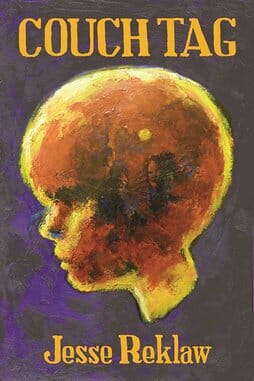Couch Tag by Jesse Reklaw

Writer & Artist: Jesse Reklaw
Publisher: Fantagraphics
Release Date: December 20, 2013
Not so much a graphic novel as a collection of five graphic novellas, Jesse Reklaw’s Couch Tag is an effort to make you tremendously sad without crossing the line into melodrama. Much like Josh Cotter’s Skyscrapers of the Midwest, which this book resembles in tone but not visuals, Couch Tag will gently remove your rose-colored glasses as you reflect on your childhood, making you extremely thankful that you are now an adult. There is a kind of anti-nostalgia that, if done correctly, both evokes the confusion, pain, and lack of control in childhood and brings you to the verge of tears because of its restraint. This book is mixed in its approach, and nothing is as successful as its first story, “Thirteen Cats of My Childhood,” which also appeared in the 2006 Best American Comics anthology, but the picture it assembles is sad, interesting, and individual.
-

-

-

-

- Curated Home Page Articles By Test Admin October 21, 2025 | 3:10pm
-

- Curated Home Page Articles By Test Admin October 21, 2025 | 2:57pm
- Urls By Test Admin October 21, 2025 | 2:57pm
- Curated Home Page Articles By Test Admin October 21, 2025 | 2:55pm
-

-

-

-

-

-

-

-

-

-

-

-

-

-

-

-

-

-

-

-

-

-

-

-

-

-

-

-

-

-

-







































